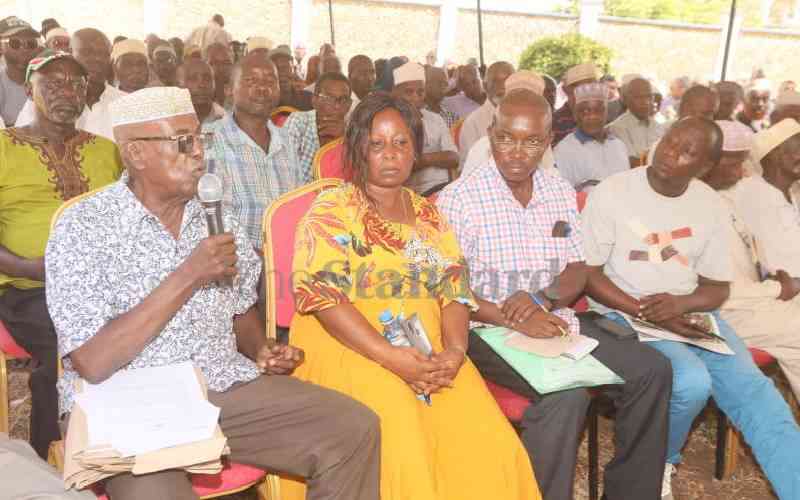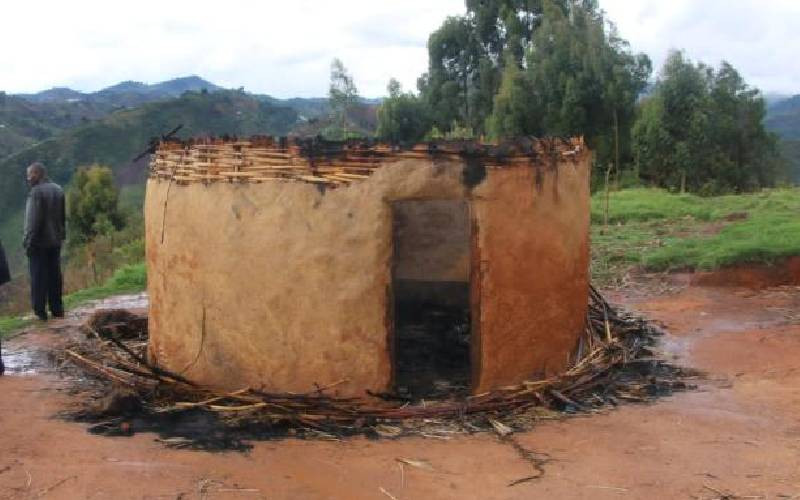One way to resolve legal disputes faster is to have the warring parties record consent in court on the agreed issues.
But what happens when the consent decree mysteriously disappears from the court file and years down the line and one of the parties denies its existence?
That is the question the Supreme Court will be facing early next year in one of the most high profile land disputes in Kenya.
And its decision in the case involving the Kenya Commercial Bank (KCB) and three companies could heavily determine how financial institutions will henceforth deal with loan applicants and their properties charged as security.
In April 1989, KCB advanced a loan to Benjoh Amalgamated which was secured with two properties in Kiambu and Nyandarua, guaranteed by a sister company Muiri Coffee Estate.
The firm defaulted despite several notices and the bank instructed its auctioneers to sell off the land. The auction was scheduled to take place on March 5, 1992, but Benjoh Amalgamated filed a suit to stop it.
On May, 5, 1992 the parties recorded a consent in which Benjoh Amalgamated admitted liability and undertook to repay all the money by July 31, same year. They agreed that failure to pay up the bank could sell the property.
The companies failed to comply with the consent decree and the land was sold in a public auction to Bidii Kenya for Sh70 million in September 2007.
SIGNED CONSENT
Benjoh Amalgamated went back to the High Court claiming the signed consent was fraudulent and they had disowned it.
They asked that the consent order entered on May 4, 1992 be set aside or reviewed. On October 31, 1997, the High Court set aside the consent order. That ruling was, however, overturned by the Court of Appeal on March 10, 1998. Apparently, the consent decree and other records had already disappeared from the court file.
On November 9, 2012, Benjoh Amalgamated and Muiri Coffee Estate went back to the Court of Appeal, this time asking to be allowed to take the matter to the Supreme Court.
They said the Court of Appeal could not have overturned the High Court’s judgment in March 1998 without referring to the record of the consent order. No judicial decision could be made on the basis of a missing court record, they submitted.
KCB opposed the application, contending that having decided on the matter, the Appeal court could not preside over it again. Court of Appeal judges GBM Kariuki, Daniel Musinga and William Ouko easily concluded the case did not raise issue of such importance.
“These issues are not issues that transcend the interest of the parties in the litigation, nor do they impact in any way on society, much less bear on public interest,” they held as they declined to issue a certificate under Article 163(4)(b) of the Constitution to allow the matter to go to the Supreme Court.
Stay informed. Subscribe to our newsletter
Last month, Muiri Coffee Estate went back to the Appeal court for a certificate to challenge that decision at the Supreme Court. The application was granted.
Their lawyer says the question is what should be the legal consequence where a court of record such as the High Court or the Appeal court had no record.
“A court of record is so called because it keeps a record of its proceedings, rulings and judgments, and it is the record that guides the subsequent applications and direction of the litigation,” he argued.
But Bidii Kenya Director Rahul Dilesh Bid says Benjoh Almagamated and Muiri Coffee Estate entered into the consent way back in 1992 admitting the liability to KCB, hence confirming the validity of the charge.
Mr Dilesh says the two firms were only abusing the court process. He says if the firms are allowed to have their way, the court will set a trend where banks and genuine buyers of such properties will lose their rights on grounds that court records cannot be traced.
The Court of Appeal takes issue with the manual systems of record-keeping in Kenya’s Judiciary.
“The issue appears to us to have far-reaching consequences and implications on the integrity of the adjudicative processes of the courts. A long-hand, manual recording of proceedings by the concerned judicial officer as opposed to an independent automated system within built accuracy and integrity safeguards will continue to plague our courts, yet they are, and must remain and be seen to be, courts of record,” said the last bench of judges as they send the matter to the Supreme Court.
The judges added, “Our courts are the people’s courts under our constitutional set up and the people would have an interest in proper proceedings being kept by and available at the courts.
“It is ironical the record that ought to accurately, faithfully and authoritatively settle any dispute or controversy as to what may have transpired or been said before a court of law is what is here missing, with the effect that there is a lack of certitude and the controversy rages unable to be halted by the certain word of the record.”
 The Standard Group Plc is a
multi-media organization with investments in media platforms spanning newspaper
print operations, television, radio broadcasting, digital and online services. The
Standard Group is recognized as a leading multi-media house in Kenya with a key
influence in matters of national and international interest.
The Standard Group Plc is a
multi-media organization with investments in media platforms spanning newspaper
print operations, television, radio broadcasting, digital and online services. The
Standard Group is recognized as a leading multi-media house in Kenya with a key
influence in matters of national and international interest.
 The Standard Group Plc is a
multi-media organization with investments in media platforms spanning newspaper
print operations, television, radio broadcasting, digital and online services. The
Standard Group is recognized as a leading multi-media house in Kenya with a key
influence in matters of national and international interest.
The Standard Group Plc is a
multi-media organization with investments in media platforms spanning newspaper
print operations, television, radio broadcasting, digital and online services. The
Standard Group is recognized as a leading multi-media house in Kenya with a key
influence in matters of national and international interest.








